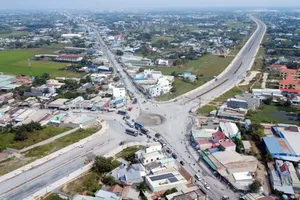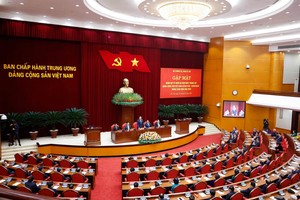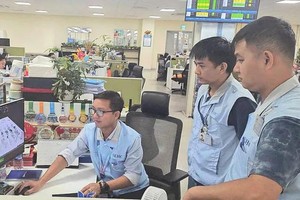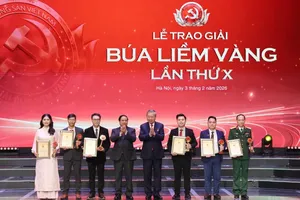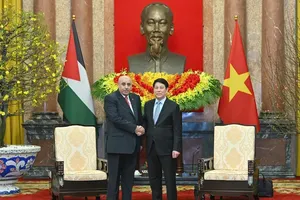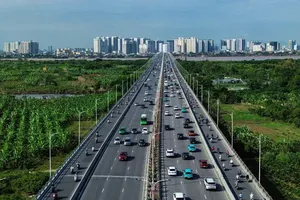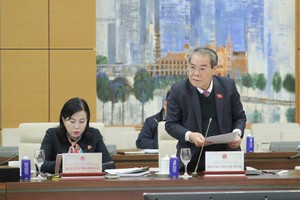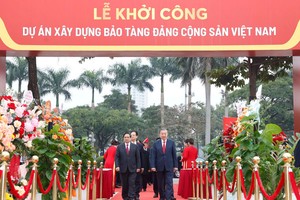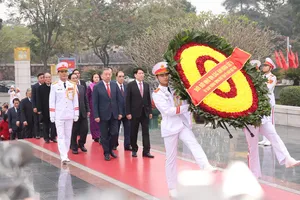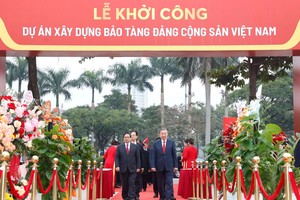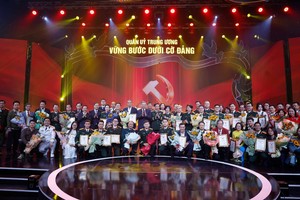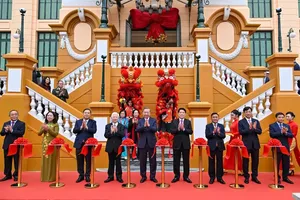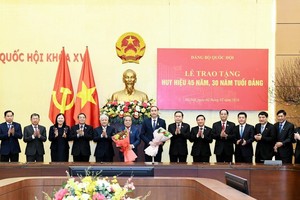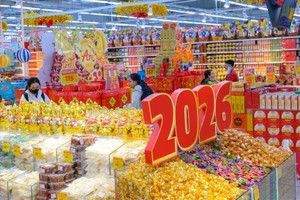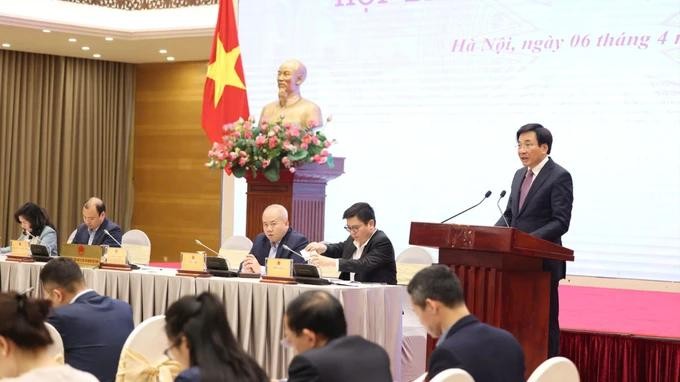
This was heard at the Government's regular press conference presided by Minister and Chairman of the Government Office Tran Van Son, who also serves as the Government Spokesperson, yesterday afternoon.
During the conference, Deputy Minister of Industry and Trade Truong Thanh Hoai addressed the United States' announcement of a 46 percent tariff on Vietnamese export goods, scheduled to take effect on April 9. He articulated that this tariff could trigger a significant and multi-dimensional economic ripple effect, potentially impacting Vietnam's export performance and overall economic growth trajectory.
The Deputy Minister specifically highlighted concerns regarding the potential adverse effects on the development of key processing and manufacturing industries, which are crucial for Vietnam's economic diversification and industrialization.
Furthermore, he emphasized the potential for negative consequences on foreign direct investment (FDI) inflows and domestic investment, both of which are critical for capital formation and job creation. Finally, he addressed the potential for cascading effects on related service sectors and employment levels, underscoring the broad economic implications of this trade measure.
Several key export categories—such as computers, electronic products and components; machinery, equipment, tools, and spare parts; as well as textiles and footwear—are facing the risk of declining export turnover. If tariffs rise, the price of Vietnamese goods in the U.S. market will increase, reducing their competitiveness against products from other countries.
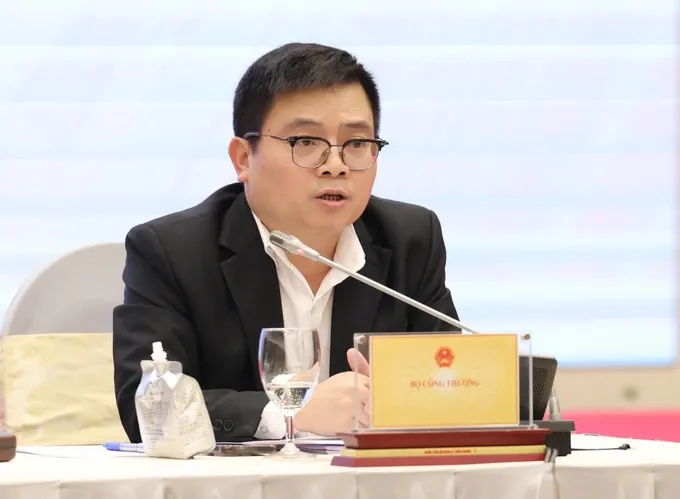
This could weaken purchasing power among U.S. consumers and subsequently lead to a drop in demand for Vietnamese exports. Existing business contracts may come under review and securing new agreements could become more challenging. In response, the Government is actively engaging with U.S. counterparts to seek a balanced and constructive resolution.
In the near future, through the policy dialogue mechanism of the Vietnam–U.S. Trade and Investment Framework Agreement (TIFA) Council, the Ministry of Industry and Trade will collaborate with relevant ministries and agencies to maintain close engagement with U.S. partners. Efforts will focus on jointly addressing outstanding issues in bilateral economic and trade relations and exploring suitable frameworks for cooperation in the evolving global context, with the goal of advancing the interests of both countries' business communities. Additionally, the Prime Minister has established a task force, led by Deputy Prime Minister Bui Thanh Son, to enhance cooperation and proactively respond to shifts in U.S. economic and trade policies.
Leveraging its extensive trade network - including 17 free trade agreements (FTAs) with over 60 countries and territories, as well as 70 bilateral economic and trade cooperation mechanisms - Vietnam will pursue a strategy of export market diversification. This will involve continued FTA negotiations with emerging markets in the Middle East, Latin America, Central Asia, and beyond.
Recognizing the challenges and opportunities in the U.S. market, the Ministry of Industry and Trade is committed to providing continued support to Vietnamese enterprises engaged in export activities. Simultaneously, the Ministry is actively conducting market research and implementing strategies to diversify export destinations, thereby mitigating risks and enhancing the long-term sustainability of Vietnamese exports. This dual approach reflects the Ministry's commitment to both maintaining existing trade relationships and proactively exploring new market opportunities for Vietnamese businesses.
Commenting on economic growth in the first quarter of 2025 and projections for the full year—as well as expectations for foreign direct investment (FDI) inflows—Deputy Minister of Finance Do Thanh Trung noted that despite an extended holiday period, GDP grew by 6.93 percent, aligning closely with the Government’s projected growth scenario. He described this as a highly positive and encouraging outcome, reflecting the strong collaboration among all levels of government, the public, the business community, and the broader political system.
Despite ongoing challenges since early April, the Prime Minister has reaffirmed his commitment to maintaining the 2025 growth target, aiming for a rate of 8 percent or higher. In response, the Ministry of Finance has formulated updated growth scenarios for each industry and sector, with targets allocated across localities and regions. Specifically, the Ministry has projected growth rates of approximately 8.3 percent for the second quarter, 8.3 percent for the third quarter, and 8.4 percent for the fourth quarter. While these targets are ambitious, there is a strong rationale to believe they are achievable.
In the first quarter, foreign investment attraction reached nearly US$1 billion, a 35 percent increase over the same period in 2024. Notably, realized capital reached $5.16 billion, over 5 times higher than the previous year's figures.
According to a representative from the Ministry of Finance, U.S. tax policy is currently the most influential factor affecting investor sentiment, the business climate, and the overall outlook for investment and operations in Vietnam. In response, the Ministry is implementing a range of measures, including direct engagement with major investors to accelerate the implementation of large-scale foreign investment projects.
